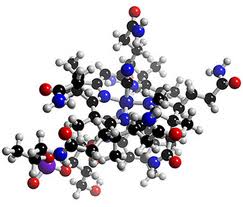 Everyday, I hear that a plant-based diet is dangerous! Stories abound! There are urban legends about Jane or John or Joe Doe who eat a plant-based diet are sick and/or dying. No one actually knows someone who admits to being Vitamin B12 deficient but the danger still lurks around every corner.
Everyday, I hear that a plant-based diet is dangerous! Stories abound! There are urban legends about Jane or John or Joe Doe who eat a plant-based diet are sick and/or dying. No one actually knows someone who admits to being Vitamin B12 deficient but the danger still lurks around every corner.
Evidently we have all heard about vitamin B12 deficiency. The problem is that we have heardabout it. Maybe one person in a hundred can come up with a single fact about vitamin B12. So here are a few facts about B12 to think about.
Basic Facts about Vitamin B12:
- Vitamin B12 is a water-soluble vitamin. It help regulate the functions of the brain and nervous system. It is necessary to form blood and the human body uses it for cell division.
- B12 is stored in the liver
- The only real sources of B12 in your body is from the bacteria in your digestive tract
- Symptoms of B12 deficiency include numbness and tingling in the hands and feet, fatigue, depression and poor memory. There is some evidence that it can cause mania or psychosis. B12 deficiency plays a key role in anemia, particularly pernicious anemia. If it becomes severe (usually in cases of starvation) it can lead to irreversible brain and nervous system damage.
- The common precursors of B12 in human digestion are found in animal based products including fish and shellfish, meat and poultry, eggs, milk, and milk products.
- Another source of B12 is found in soil; particularly soil that has supported animal life
- The seaweed Nori contains substantial amounts of B12 which is readily bioavailable
- Other sources of B12 are produced through a fermentation process using the bacterium Propionibacterium shermanii and Pseudomonas denitrificans.
- Spirulina or other algae as wells as nutritional yeasts. do not produce forms of B12 that humans can utilize
Facts About Your Body, Your Diet and B12
- The actual requirement for vitamin B12 is very low; 2-3 micrograms daily
- Vegetarians usually get enough B12 by consuming eggs and dairy products
- Prudent vegans will include sources of vitamin B12 in their diets. However, vitamin B12 deficiency is actually quite rare even among long-term vegans; there are those who say that vegans who previously ate animal-based foods usually have vitamin B12 stores that last for 20 to 30 years or more
- Many soils contain B12 and plants pulled from those soils and not washed scrupulously often contain remnants of B12
- If you take a B12 supplement always take sub-lingual versions of the Methylcobalamin or hydroxycobalamin forms of B12 (not cyanocobalamin which is the most common form)
Books and long articles have been written about B12. There is lots of info and dis-info available. I recommend that you search the John McDougall and T. Colin Campbell sites for B12. They both have clear, concise answers to most of your questions about B12.

I am a great believer in the better safe than sorry school of live. So as a life long vegetarian and now vegan, I take B12 two or three times a week. It can’t hurt anything but my pocketbook (it is water-soluble after all) and it might help. Here is a link to the kind I like best






